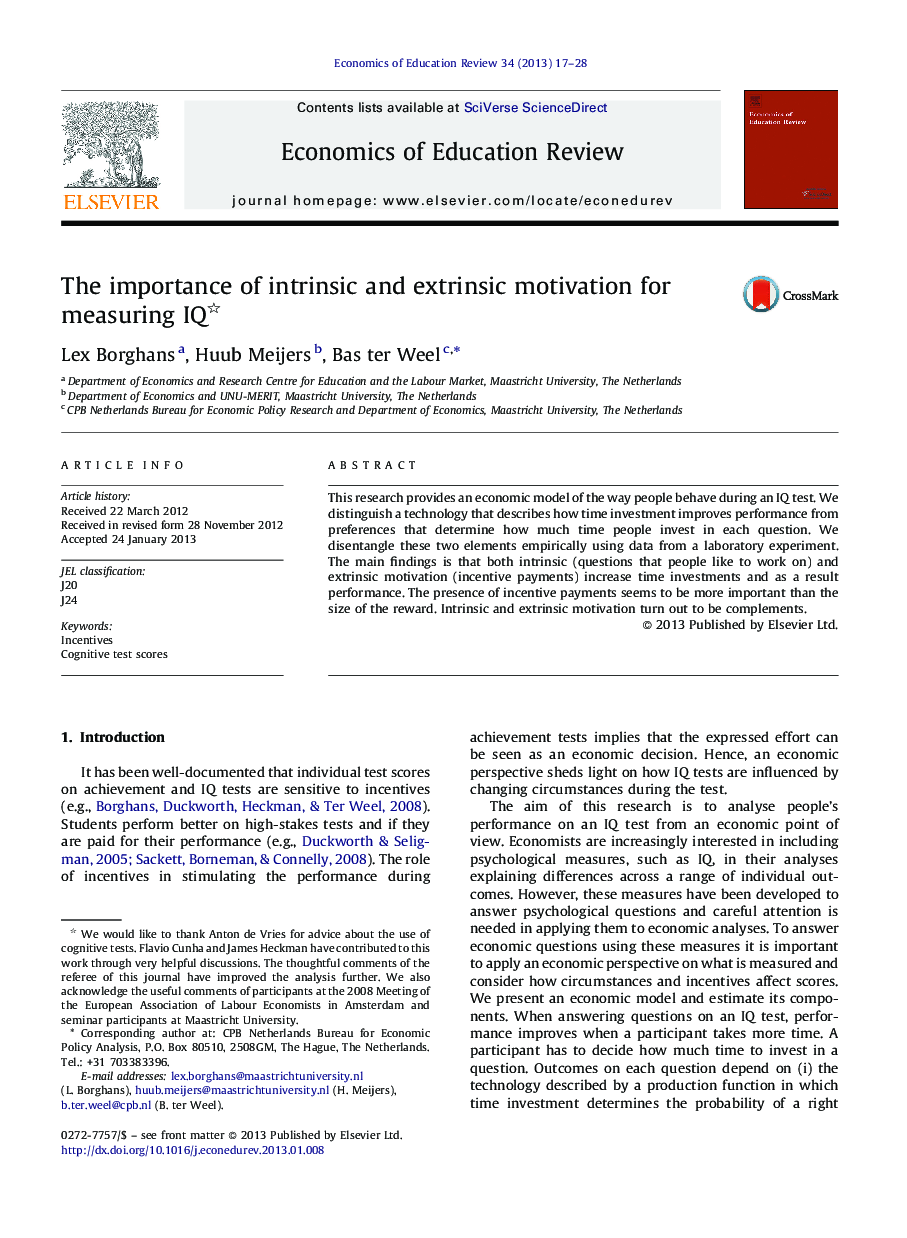| Article ID | Journal | Published Year | Pages | File Type |
|---|---|---|---|---|
| 354476 | Economics of Education Review | 2013 | 12 Pages |
This research provides an economic model of the way people behave during an IQ test. We distinguish a technology that describes how time investment improves performance from preferences that determine how much time people invest in each question. We disentangle these two elements empirically using data from a laboratory experiment. The main findings is that both intrinsic (questions that people like to work on) and extrinsic motivation (incentive payments) increase time investments and as a result performance. The presence of incentive payments seems to be more important than the size of the reward. Intrinsic and extrinsic motivation turn out to be complements.
► Economic model of the way people behave during an IQ-test. ► Both intrinsic (questions that people like to work on) and extrinsic motivation (incentive payments) increase time investments and as a result performance. ► The presence of incentive payments seems to be more important than the size of the reward.
